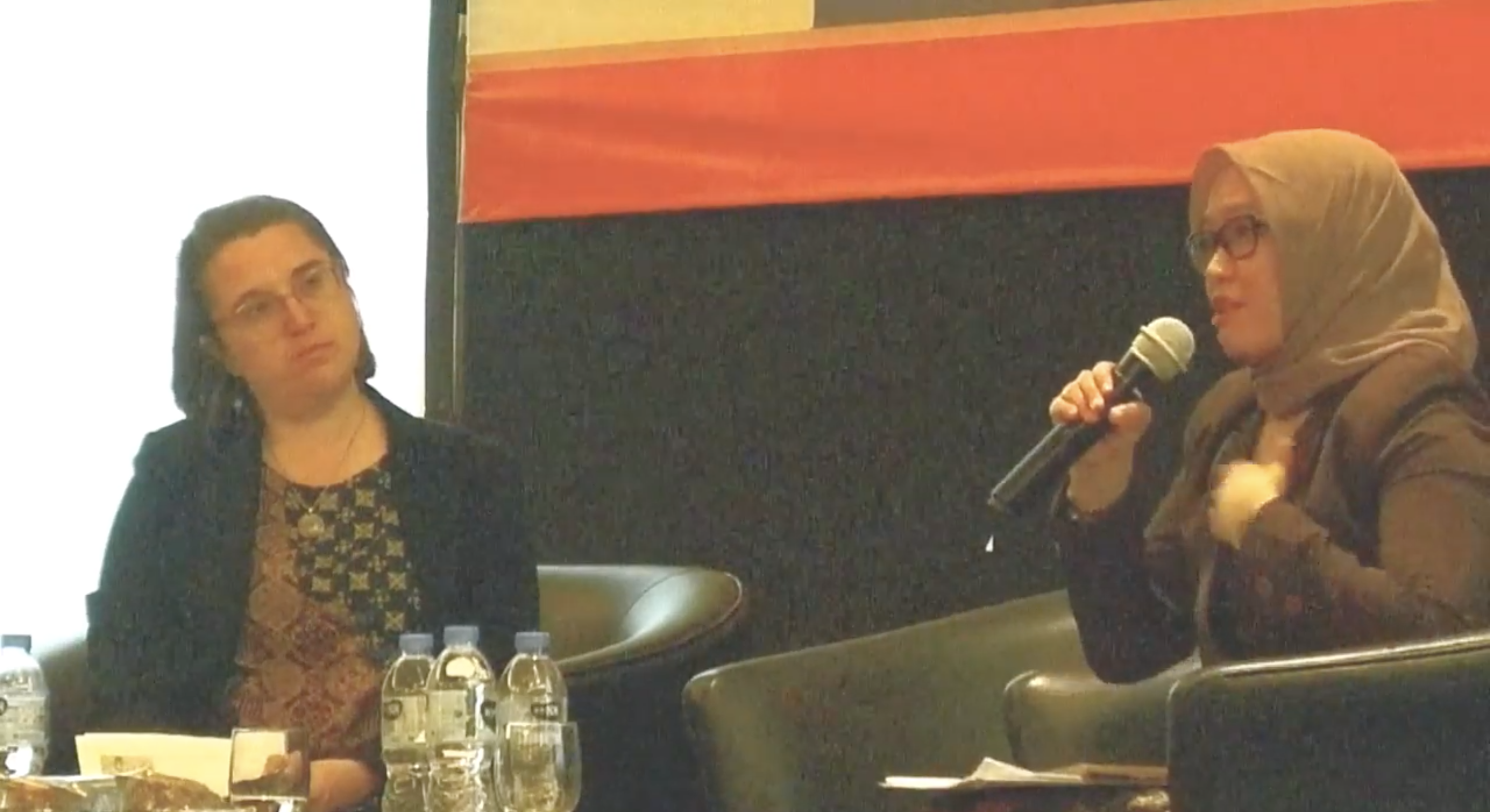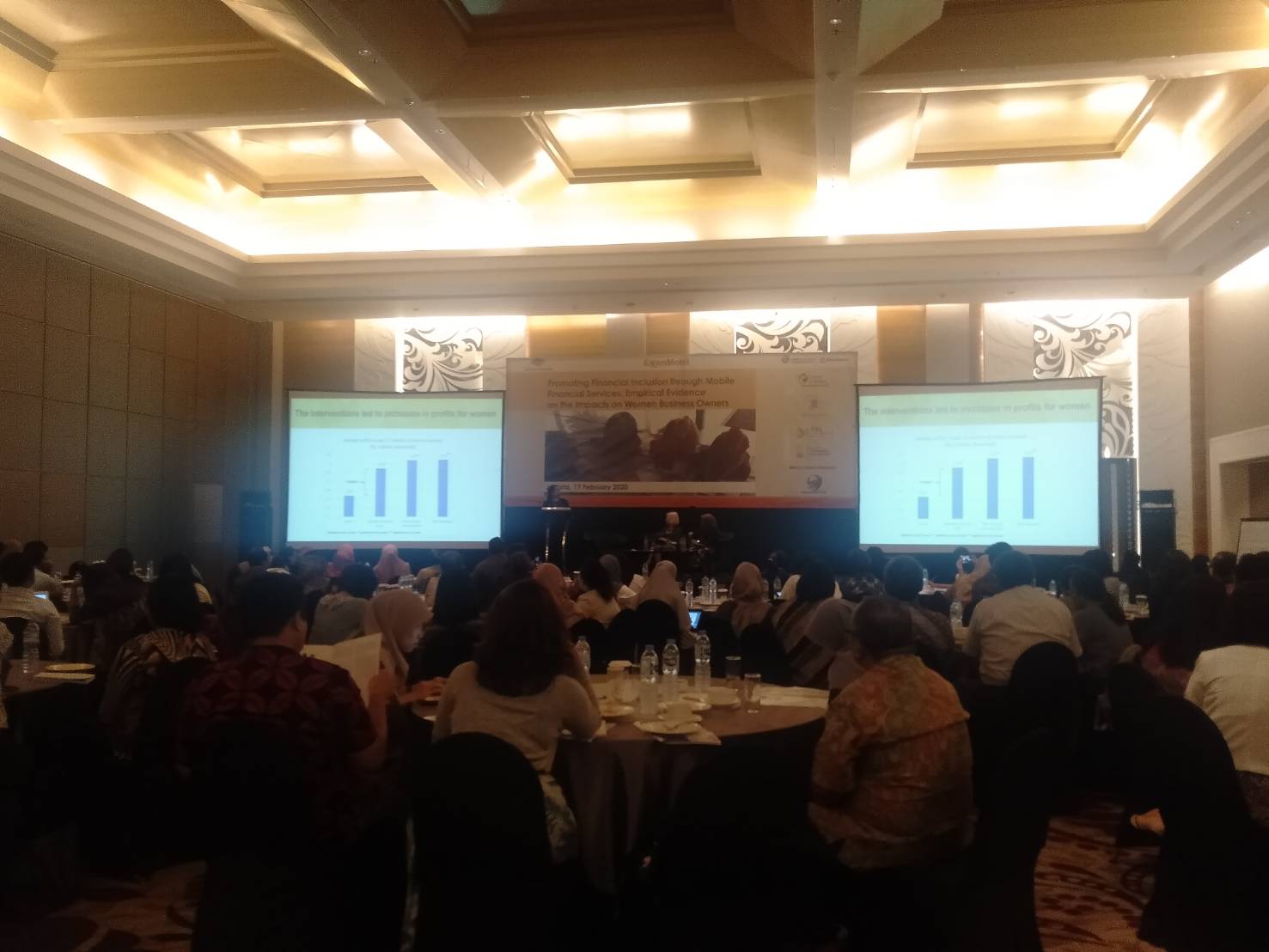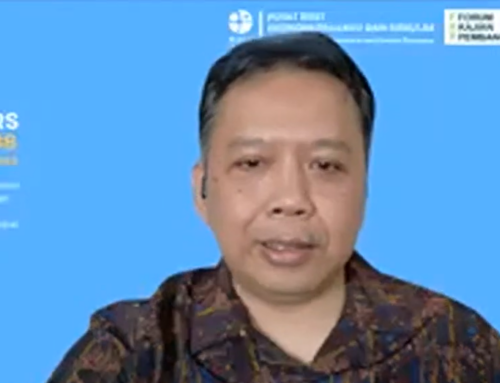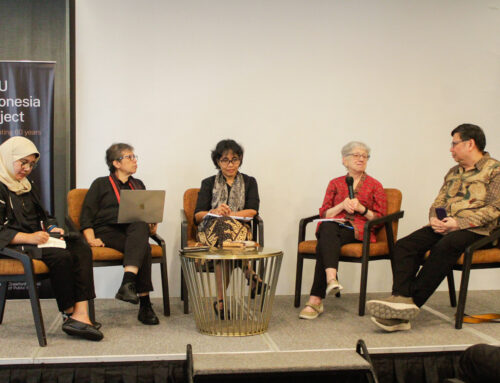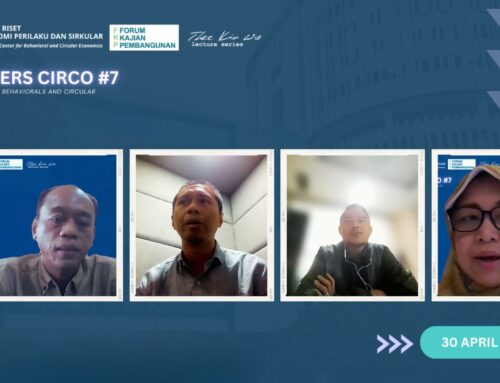Data shows that women are more willing to save in comparison to men; even though women earn less, they’d save a higher fraction of their annual earnings. However, although savings can be a way for women to improve their economy, women lack access to safe and reliable saving instruments, as indicated by the gender gap in bank account ownership in developing countries. A randomized evaluation was conducted to test whether financial literacy or promotion of financial inclusion, particularly through mobile financial services, would increase the number of formal savings and eventually improve economic outcomes. The study was conducted by Abdul Latif Jameel Poverty Action Lab Southeast Asia (J-PAL SEA), Center for Global Development (CGD), Mercy Corps Indonesia (MCI), World Bank Group’s East Asia and Pacific Gender Innovation Lab (EAP GIL), and a bank in Indonesia, with support from ExxonMobil Foundation and the Australian Department of Foreign Affairs and Trade (DFAT). Results and policy lessons from the study were discussed at an FKP seminar on 17 February 2020 in Jakarta.
A program called Laku Pandai (LP) incentivizes agents to provide basic mobile banking services to women entrepreneurs in 400 villages in 5 Kabupaten in East Java. Some of the women business training, and the others did not. With this varying treatments, a study managed to evaluate how women entrepreneurs experience increased profits and welfare when they’re given access to and training in banking. The result shows that women who received training improved their business practices, increase their savings, and increase their decision-making authority compared to those who didn’t receive training. As a result, women who received training also experience increased profits and welfare. This study thus highlights the importance of banking and business training to boost welfare among female entrepreneurs.
In designing a program that boosts the welfare of female entrepreneurs, this study prepared training modules on personal finance and mentoring modules on business development. Some of the lessons learned from implementing the program include the importance of 1) asking the spouse’s permission to undergo training, 2) literacy among participants to set the “mood” of the training process, and 3) committed trainers. Focus on specific topics for the training, and direct connection to the banking agents are required to improve the delivery of the training. These lessons should be taken into account when developing future programs that aim to improve the welfare of female entrepreneurs.
For the complete presentation and Q&A session, please refer to the video and materials provided.
